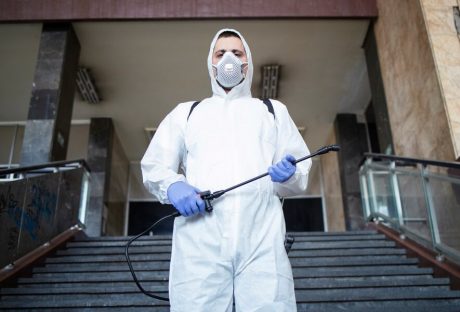Tag: ROI Of Proactive Pest Control

The ROI Of Proactive Pest Control For Property Management
As a property manager, proactive measures across all operational areas often translate to cost savings and increased value over time. Pest control, while occasionally sidelined in strategic planning, stands out as a domain. There a proactive approach can yield significant returns on investment (ROI). To understand the true value, one must delve into the multifaceted benefits and cost savings linked with proactive pest management. Understanding The True Cost Of Pests Before delving into the benefits of a proactive approach, it's essential to comprehend the full spectrum of costs associated with pest infestations. Beyond the immediate expense of extermination and potential structural repairs, there are indirect costs. They impact a property's bottom line. Operational Disruptions Pest infestations can cause significant disruptions to regular property operations. Whether it's the temporary closure of facilities for treatment or the time spent addressing tenant concerns, these disruptions translate to lost hours and increased operational costs. Legal Liabilities Failing to address pest problems can lead to potential legal ramifications. Tenants have a right to a safe and habitable living environment. If pest infestations infringe upon these rights, property managers might find themselves facing legal claims, further elevating costs. The Tangible Benefits Of Proactivity There are some benefits that are tangible in nature. Lets try to understand them all here. Minimised Structural Damage Pests like termites and rodents can cause considerable structural harm. Proactive pest control helps in early detection, potentially saving thousands in repair costs. Preserved Property Value Properties with a history of significant pest problems can see depreciation in their market value. Regular preventive measures ensure that the asset's value remains uncompromised. Reduced Turnover And Vacancies Tenants prefer properties that are well-maintained and free from pest issues. A proactive stance can lead to higher tenant retention rates and fewer vacancies, ensuring steady revenue streams. Intangible Returns: Beyond The Balance Sheet Other than the tangible ones there are also the intangible returns that the occupants are likely to receive here. . Enhanced Reputation In the age of digital reviews, a single pest-related complaint can severely dent a property's reputation. Proactive pest control aids in avoiding such negative publicity, bolstering the property's image in the market. Tenant Satisfaction And Loyalty The well-being and comfort of occupants directly correlate with their loyalty. By ensuring a pest-free environment, property managers foster trust and satisfaction among tenants. Proactive Measures: A Strategic Investment The efficacy of pest management depends quite an extent on the proactive measures. We discuss a few of them here. Routine Inspections Regularly scheduled inspections are pivotal in proactive pest control. By meticulously examining properties at set intervals, professionals can detect subtle signs of infestations or conditions conducive to pests. This proactive approach can identify potential problem areas, ensuring timely interventions before small issues escalate into significant challenges. Moreover, these inspections provide a documented history of pest activity, enabling property managers to tailor future preventive strategies based on past occurrences. Integrated Pest Management (IPM) IPM is not just a method but a philosophy in pest control. It is a comprehensive approach that combines preventive measures with eco-friendly treatment options, emphasising the importance of understanding the life cycle of pests and their interaction with the environment. By pin-pointing on long-term mitigation rather than immediate fixes, IPM offers sustainable and cost-effective pest control. This strategy minimises the use of chemicals, reduces the risk of pesticide resistance in pests, and ensures a safer environment for property occupants. Educating Tenants A well-informed tenant is an asset in pest prevention. Informing tenants about best practices, from proper waste management to identifying early signs of infestations, can be invaluable. An educated tenant base often acts as a first line of defence against pests, reporting issues before they magnify. Furthermore, by fostering open communication channels, property managers can build trust with tenants, ensuring collaborative efforts in maintaining a pest-free environment. Utilising Pheromone Traps And Monitoring Stations Pheromone traps, which use synthetic versions of insect hormones to attract and trap pests, can be a crucial part of early detection. By strategically placing these traps around a property, managers can monitor pest activity levels and identify potential issues before they become significant problems. Monitoring stations for pests like termites can provide early warnings, allowing for timely interventions and reducing the need for extensive treatments later. Collaborative Approaches And Community Involvement Property managers need not tackle the pest challenge alone. Engaging the larger community can amplify the benefits of proactive control. Community Education Sessions Organising sessions where experts offer insights about local pest challenges and preventive measures can be invaluable. This not only educates tenants but also fosters a sense of community involvement. Collaborative Buying Pooling resources with neighbouring properties for preventive pest control measures can lead to cost savings for all involved, enhancing ROI for each property. Assessing ROI: The Bigger Picture Quantifying the ROI of proactive pest control isn't merely about direct cost savings. One must consider the combined value of preserved property integrity, sustained tenant satisfaction, and the avoided costs associated with potential infestations. When these elements are accounted for, the ROI of preventive pest management becomes overwhelmingly positive. The Future: Leveraging Technology With advancements in technology, property managers now have tools that can predict potential infestation risks based on various factors, including geography, weather patterns, and property history. Investing in such predictive technologies can further enhance the ROI by ensuring timely interventions, often before a problem manifests visibly. Concluding Thoughts The realm of property management is rife with challenges, and pests, albeit small, can lead to monumental problems. However, with a proactive approach to pest control, managers can not only mitigate risks but also realise substantial returns on their investments. By reframing pest control from an occasional necessity to a strategic investment, properties can enjoy both tangible and intangible benefits. In the end, the ROI of proactive pest control underscores its indispensability in the modern property management toolkit. Read Also: Beginners Guide To Choosing The Right Property 7 Tips To Purchase A Prime Real Estate Property
READ MOREDetails















